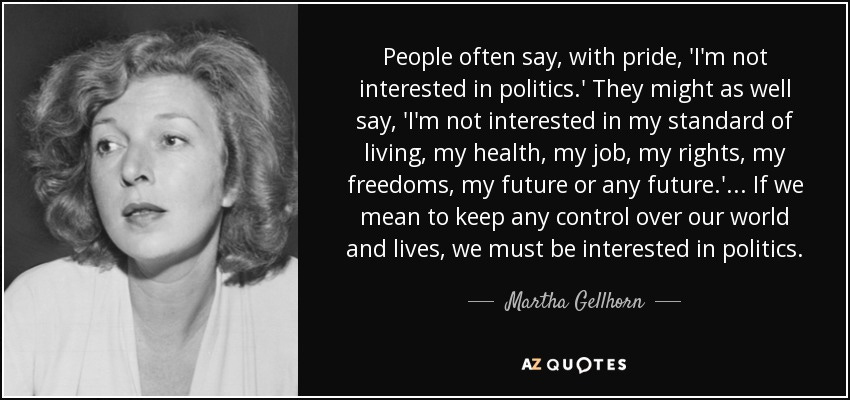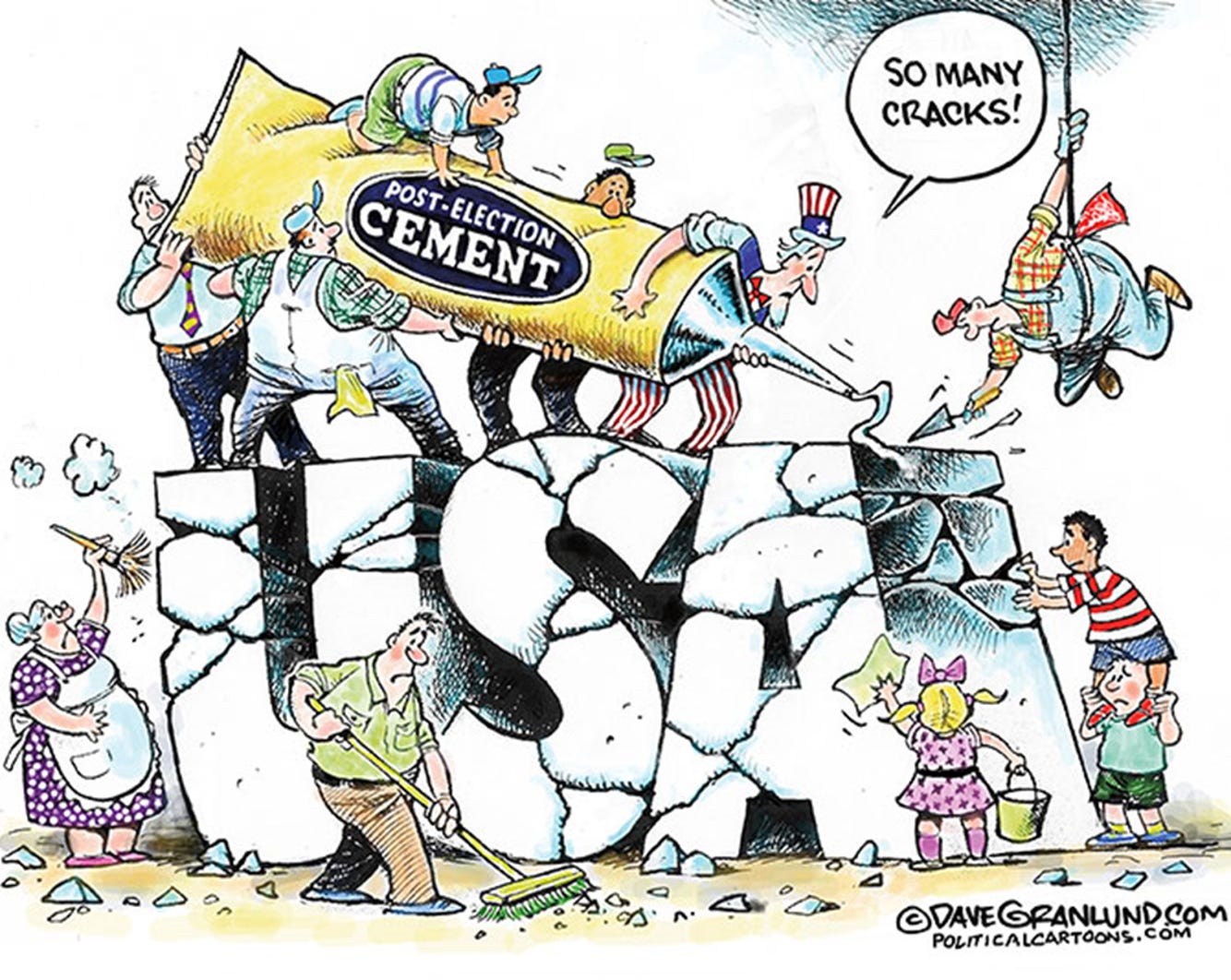You Don’t Have to Wait Until November to Have an Impact
Talking heads love to tell us that voting is the answer to all of our problems, but we can do so much more right now to create long-lasting impact in our communities.
It feels like there is so much going on in the world. So much seems to happen nowadays that we can’t even focus on one issue because as soon as we do, another issue pops up. Gun violence, housing crisis, some new disease, massacres of innocent men, women, and children being killed with our tax dollars and no one doing anything to stop it, everyday people just trying to get by while prices for housing and food continue to rise while wages have not kept up with the pace. It has gotten to the point where many of us have started to check out and focus solely on ourselves and our families. But there are still many others who are wondering what they can do personally about the challenges that we face as a people, nation, and world. The president and the Supreme Court seem to be making decisions that go against the will of the people, and the legislative body can’t seem to make any laws to address our conditions. Well, I’m here to tell you that there’s always something you can do, but if you’re trying to change the world in a single bound, you’ll either be too scared to try or become dejected once you realize that changing the world by yourself is not possible. If we are going to change our present circumstances, we must follow the words of Booker T. Washington and “cast down your bucket where you are.” You may not have the ability to change the entire world, but all of us can impact our little corners of the world.
Some of you may be asking “I'm just an everyday working person, what can I do about these challenges you speak of and what actions can I take?” Well, the fact is that you can take action to fight for humanity from anywhere. From any position you have, you can stand for the socio-economic advancement of all people in your community. No advanced degree is required, just a heart that’s in the right place and a body that is willing to serve. Our nation is composed of three legs that keep society standing: government, business, and the people. We, the people, have a crucial role in upholding our society.
“What we lack in this society is poverty of imagination.”
Cord Jefferson, director of American Fiction
The only barriers between us living in an ideal world full of opportunity and human rights, instead of a world full of hunger and injustice, are the limits of our imagination and ability to act. The status quo can no longer exist when we allow ourselves to dream of a better world and take the steps to make that a reality. The president and politicians do not make the world a better place, we — the people — make the world a better place. We set the standard by which our elected representatives should abide by in our democratic republic. The best way for us to create this new standard is to create it ourselves by working every day from wherever we are. Here are some things we can do to impact our corners of the world:
1. Recognize that you vote every day.
“Protest is a daily thing.” Joshua V. Barr
As a person of enslaved African descent growing up in the South, we were always told that there were only two hopes for our community: pray and vote. But voting only comes around every two to four years, and prayer without putting your faith into practice does not lead to progression. Just in case you didn’t know it, we vote every single day of our lives. We vote based on how we spend our time and how we spend our money. We live in an attention-based economy, where companies make money off what we watch, read, and listen to. In a capitalist system, capital, i.e., money, is king. If you want to have an impact on your community, the first question you should always ask yourself is, where am I spending my time and money? We do not have to wait for a movement in order for us to make a move; if we truly want things to change, all we have to do is divert our dollars from entities and activities that do not promote the health and well-being of our communities and once those entities engaged in counter-community activities feel the economic impact they will hopefully change. Suppose the issue is larger than the practices of those entities themselves. In that case, they will likely influence our elected representatives to address the issue because they are losing money. If those entities lose money, politicians lose funding for their campaigns, reducing their chances of getting reelected and forcing them to act because no one wants to give up power. Fair or unfair, this is the present system that we live in.
I once saw a video where a Walmart executive stated that the reason the company was adding more plant-based items to their stores was because that is what “the market” wanted. In case you didn’t know, when business leaders say “the market,” they are talking about you, the people. In a capitalist system, businesses follow the trends of consumers; therefore, if you desire change, you must analyze how you have been voting on a daily basis with your wallet:
How have I been voting with my dollars, i.e., what organizations are receiving most of my hard-earned money?
What do the businesses I have been giving most of my money to stand for?
Have they partaken in any human rights violations or discriminatory actions?
Do the actions of those businesses conflict with my personal values and beliefs?
How do I want my dollars to speak for me in the future?
To demonstrate what is truly important to you, you have to “put your money where your mouth is.”
2. Join an organization that speaks to the issues that matter to you.
“Organization solves everything.” Kwame Ture
One of the biggest lies we have ever been sold in the United States—if not the biggest—is that it’s the individual that matters most, a.k.a. individualism. The individual means nothing without a unit. There is no point in having the ability to express yourself if there is no one to express yourself to. We all need each other; it is other people that make life worth living. Presently, the way our political system is set up is unless you are super rich, most government entities and politicians won’t acknowledge (i.e. take action on behalf of) individual voices, but they will acknowledge the collective voice of entities like political organizations, corporations, or even a neighborhood association. It is the collective voice rallied around something that matters to them that gets the attention of decision-makers to move in step with the will of those organized people. If you truly want to improve socio-economic conditions in your community, you have to be a part of a group working to address that issue. When trying to decide what organization(s) to join, ask yourself the following:
What issues matter most to me? (Think hard about this. A good place to start is by focusing on what issues impact you and your family most.)
What organization is involved in addressing those issues?
How effective are they at addressing those issues? (Any significant wins or advances?)
If an organization does not exist to address the issues affecting me and my community, are there other people with whom I can rally and work to create one?
3. Show Up and Keep Showing Up
“We've got to give ourselves to this struggle until the end. Nothing would be more tragic than to stop at this point... We've got to see it through. And when we have our march, you need to be there. Be concerned about your brother. You may not be on strike. But either we go up together, or we go down together. Let us develop a kind of dangerous unselfishness.” Martin Luther King
In a segment on the NRA and gun control, John Oliver once argued that the reason why the NRA was so successful at preventing gun control legislation is because they have a very simple message regarding gun control “No,” and the organization and its people keep showing up more consistently than those who actual want gun control. If we want things to get better, we must understand that there is no such thing as perfection, but consistency and discipline are the closest things to it. We don’t have to be perfect, but we have to consistently try if we want to see results. The great thing about being a part of an organization is you don’t have to physically be present all the time at every meeting or rally. Other members of the organization can carry the flag at times when you need to be physically elsewhere because of the other demands of life, but we do need to have a vision of how we want our communities to be, a simple message that members of our organization can articulate and other persons in the community can easily understand and hopefully adopt, and we have to show up when the time calls for us to be there; to make sacrifices in the name of the greater good. City council members, school boards, county commissioners, zoning boards, etc., need to see our faces consistently, or they will make decisions that are contrary to what the community needs or desires. We don’t need to show up only when there is an immediate crisis; we must continue to address injustices if we desire to make our communities and society better, whether in times of “peace” or turmoil. Progress is a never-ending journey, so don’t get too comfortable.
Individually we may not be able to change the entire world, but we can certainly make our corners of the world a nicer place to live by fighting for human rights every day from where we stand. Do not wait until November to show how much you care. It’s what you do in between the ballot box that matters most.
“If you want to see serious changes, you actually have to show up every fucking day.”
John Oliver
Song of the Week: Wake Up Everybody by Harold Melvin & The Blue Notes featuring Teddy Pendergrass
This Week’s Challenge:
Analyze where you are spending your money: do your ideals match your spending and where your money goes?
What organization can I get involved with at a local level and support to address the issues that matter most to me and my family?
The Final Word: Stacyann Chin
####
Joshua V. Barr is an Emmy and national award-winning transformational leader, civil rights attorney, community engagement expert, and policy change strategist who has trained people in all 50 states and 5 continents. In 2020, he debuted his Emmy award-winning documentary, Breaking Bread, Building Bridges, where nearly 40 strangers were matched together based on their differences to have dinners over the course of a few months. Joshua now serves as the Chief Strategist and President of his own organization, Raising The Barr, where he collaborates with and consults government entities, not-for-profits, and other organizations that are committed to transforming their cultures and improving socioeconomic outcomes for their community stakeholders.



Great advice.